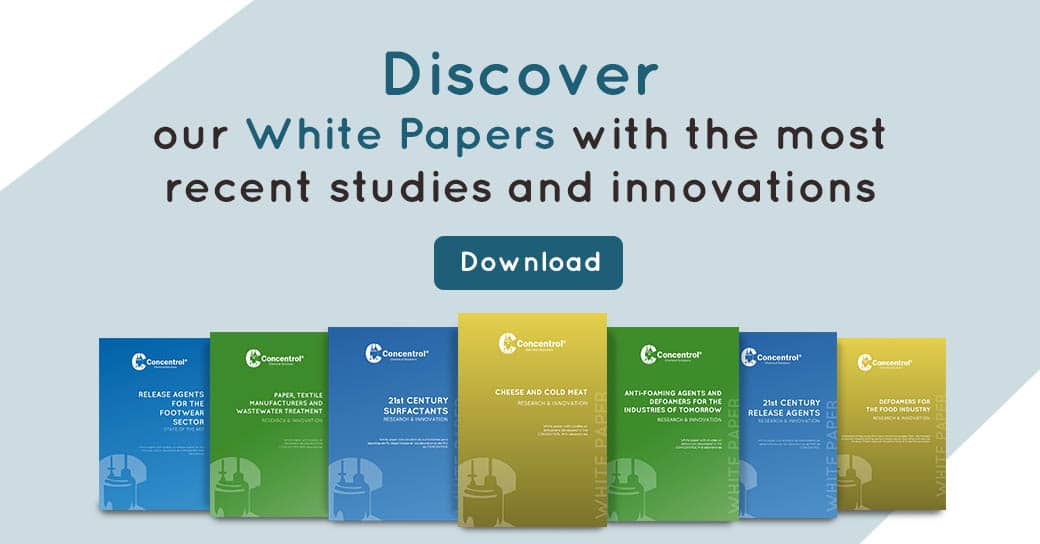Anti-foaming agents have a wide range of uses and are used in decorative paints, water treatment, adhesives, papermaking or textiles, or leather. Another sector in which defoamers play a key role is in the food sector and, specifically, in the vegetable processing industry.
Controlling and reducing the level of foam improves the performance of production processes, as it allows the use of containers to their full capacity, avoiding overflows and aiding pumping. In the food treating and processing industry, the appearance of foam is not usually positive, as it can drastically reduce production efficiency or even damage facilities. For this reason, it is often necessary to incorporate anti-foaming agents that destabilize the formation of air bubbles.
When selecting an anti-foaming agent for food use, it must be taken into account whether it can be considered a technological adjuvant, which will be carefully removed and cannot be consumed as food in itself. It is also important to consider whether the defoamer must meet the requirements for a food additive. In this case, it is incorporated as an ingredient in the final food and can be ingested.
If we focus on the processing of vegetables and fruit, we find some stages where the defoamer could be considered a technological adjuvant because it is easily removed at the end of the process, as would be the case when washing potatoes, vegetables or fresh fruit. In other cases, however, the defoamer must meet the requirements for a food additive, as it becomes part of the food. This would be the case for making juices, broths or jams.
On the other hand, there are some examples such as deep-frozen vegetables, where it is not easy to make this distinction, as the anti-foaming agent is not added directly to the food but is used in the scalding baths. In these cases, Concentrol recommends the use of defoamers suitable as food additives because the high temperatures to which the vegetables are subjected during the scalding or cooking processes can cause them to absorb the bath water, and also all the additives it contains. Even if the food is subjected to a final rinsing, some defoamers may have penetrated inside the vegetable and could not be completely removed.
For these and other applications where the use of an anti-foaming agent that is a food additive is required, Concentrol’s team of professionals has developed the product EMULTROL DFM DV-15 FG.
This defoamer consists of a food grade silicone aqueous emulsion of the polydimethylsiloxane type (food code E-900) specifically formulated to comply with European and American regulations regarding food additives.
Features of EMULTROL DFM DV-15 FG
Among the many advantages of EMULTROL DFM DV-15 FG are:
- Easy dissolution in aqueous systems.
- Does not affect the organoleptic properties of food.
- High persistence of the anti-foaming effect.
- High anti-foaming efficiency.
- Excellent effectiveness in low doses. 10ppm is the most common maximum allowable dose in food in the European Union, and the defoamer EMULTROL DFM DV-15 FG is effective in this dose range.
- Complies with European food additive Regulation (EC) No. 1333/2008.
- Safety of having the certificate as an additive E-900 in the food industry.
Concentrol has almost 80 years of experience in the chemical specialty sector. In its design, manufacturing and marketing processes, it is always committed to quality, innovation, safety, sustainability and technological avant-garde, with the ultimate goal of being able to offer the best possible solutions for each customer.
If you need more specific information on our anti-foaming lines focused on the food industry, do not hesitate to contact us so that we can offer you the most suitable solution for your needs.


